Masticating Juicer vs Cold Press: What Is The Better Option For You?
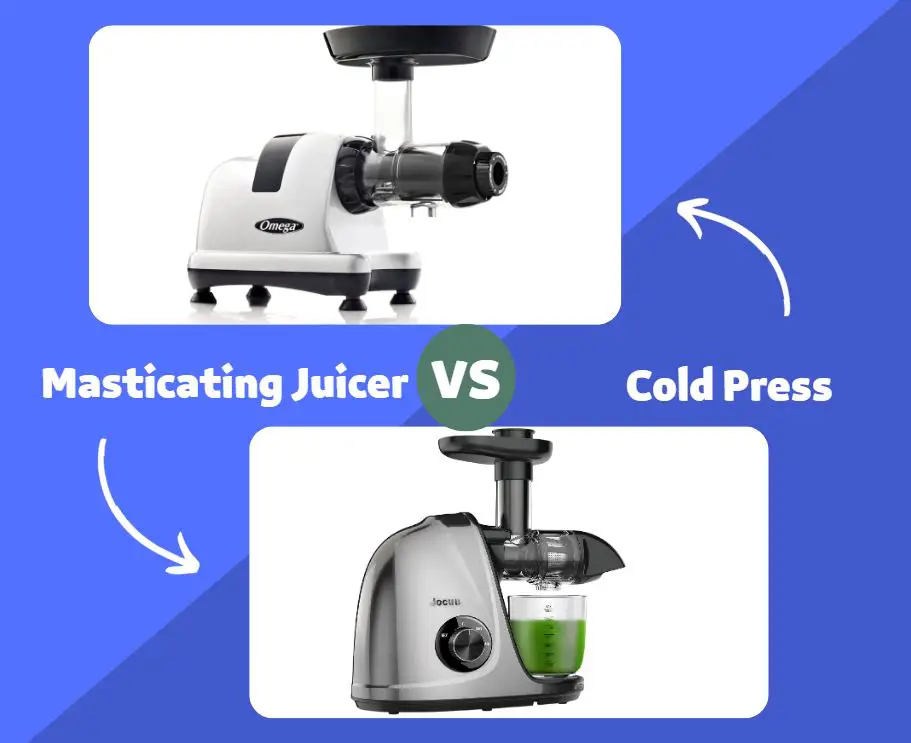
If you want to get into juicing and aren’t sure whether a masticating juicer or a cold press would be better, give this article a quick read!
While you might think that the two are the same, there are differences, and the one you pick should be the one that will best meet your needs with regard to results, pricing, and certain other factors.
I will break down the differences between the two, so you can make an informed decision!
What’s A Masticating Juicer?
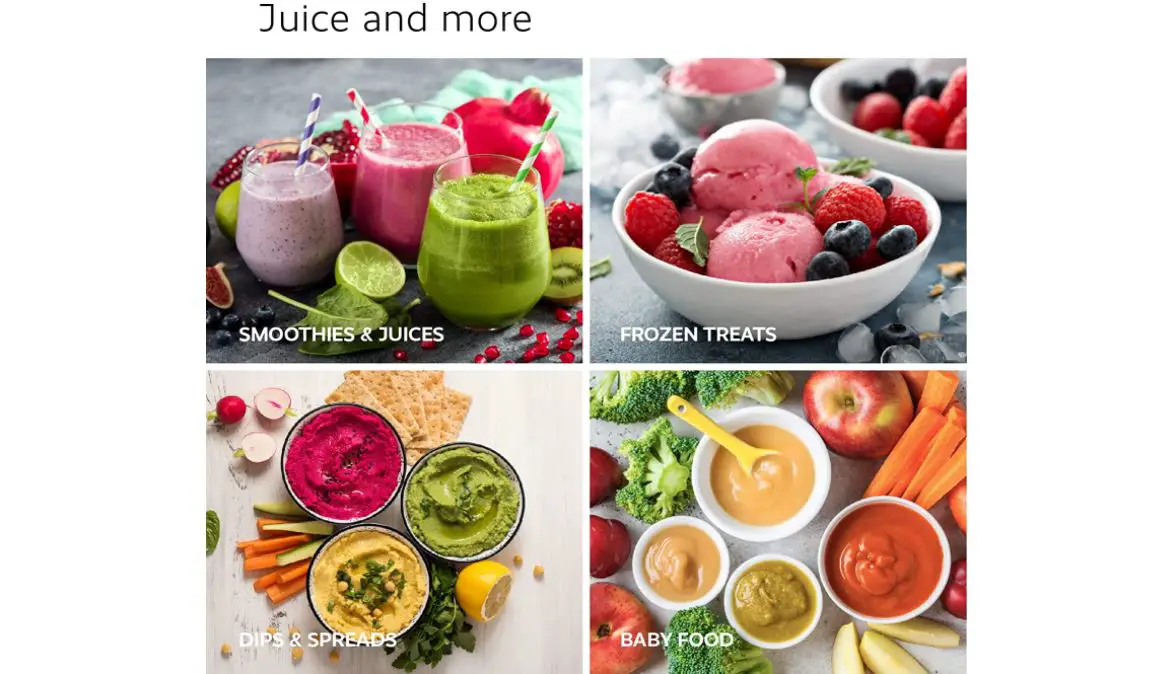
Masticating juicers, also known as slow juicers, produce juice that is crushed at a slow speed and then forced through a sharp screen.
The juicing process is slower and uses less oxygen and heat, providing a reasonably nutritious juice.
A masticating juicer results in a more pulpy juice that can be a bit bitter to taste and should be consumed soon after making it.
What’s A Cold Press Juicer?
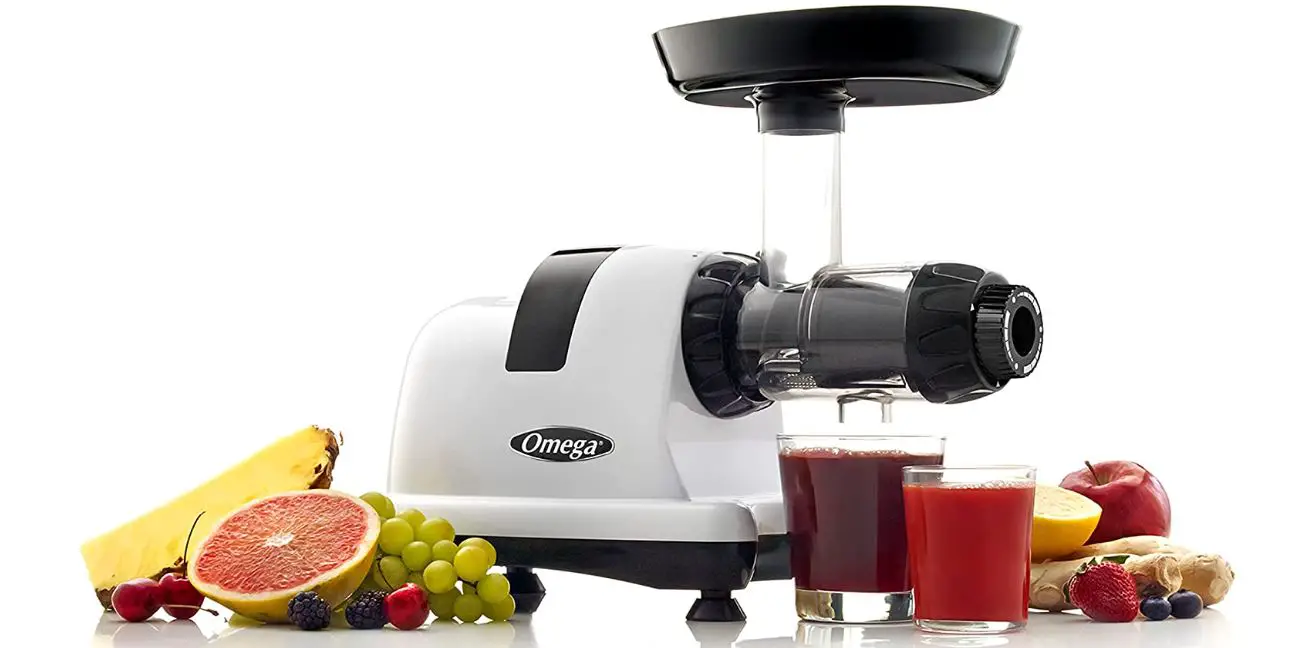
Cold press juicers are relatively widespread and use a two-stage process.
The produce is first to cut into small pieces and ground into a chunky pulp. The juice will then be slowly extracted from the pulp with immense pressure.
The juice from a cold press juicer has minimal separation and is the best-tasting juice. It also results in juice that has the most extended shelf life compared to other types of juicers.
Masticating Juicer vs Cold Press Comparison Table
Masticating Juicer |
Cold Press |
|
Cost |
Ranges between $300-$500 |
Ranges between $100-$200 |
Wattage |
Usually 200W |
Usually 150W |
Materials |
Stainless steel |
Stainless-steel |
Weight |
Ranges between 13-19lbs |
Ranges between 9-12lbs |
Why Would You Choose A Cold Press Over A Masticating Juicer – 3 Reasons
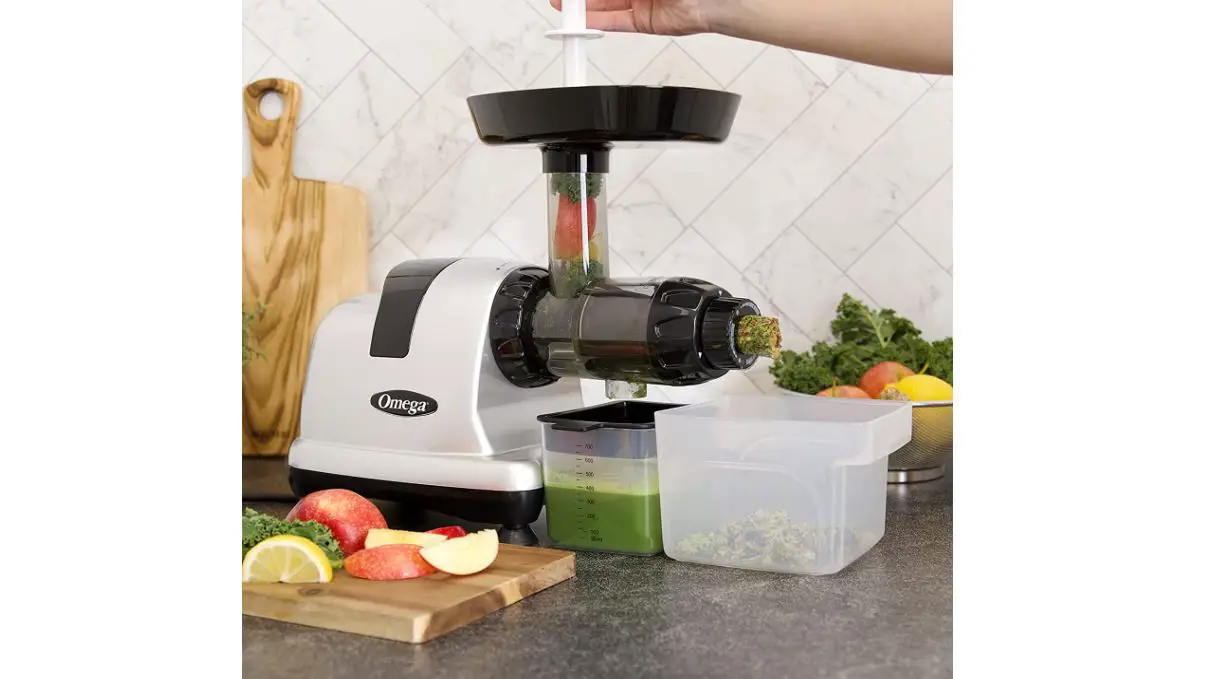
Masticating Juicer vs. Cold Press – Cost
A masticating juicer is much more cost-friendly than a cold press juicer.
Masticating Juicer vs. Cold Press – Durability & Reliability
Due to the lower speeds at which a cold press juicer works, it is more durable than a masticating juicer.
But again, it will depend on what you want to use the juicer for. Any product, no matter the quality, can break if you don’t look after it properly.
That being said, a cold press would be better suited if you want to crush harder produce like nuts or seeds.
Masticating Juicer vs. Cold Press – Performance
The amount of juice you want to make will influence which juicer you should use.
A cold press can handle more produce and give you larger quantities of juice than a masticating juicer, but if you only want a small amount of juice, then a masticating juicer will do the job.
What Are The Main Disadvantages Of Masticating Juicers?
The main disadvantage when using a masticating juicer is that the juice it produces is not very high quality.
The solids end up separated from the juice itself, leaving you with a lot of foam and pulp.
The flavor also leaves a lot to be desired, so the quality of the juice is not as high as what you would get with a cold press. The juice should be consumed sooner rather than later.
What Are The Main Disadvantages Of Cold Press Juicers?
The main disadvantage of cold press juicers is that they are not very cost-effective.
They are the most expensive juicers on the market, although there is a reason for that.
Cold press juicers produce the highest quality juice that is pure liquid with minimal pulp and has intense flavors. Investing in a cold press juicer would be worth digging deep into your pockets.
Masticating Vs. Centrifugal
There are also centrifugal juicers which are “fast juicers,” and they’re pretty popular on the market.
A centrifugal juicer is most commonly found in households because it is quicker than a masticating juicer and is cheaper.
The produce is put through a feeding tube and forced against a fast-spinning metal blade. It’s good for smaller batches of juice.
A masticating juicer will be the better of the two if you want to get more out of your produce and don’t mind the slower process.
This juicer produces juice that has more nutrients and enzymes than a centrifugal juicer. It’s also more cost-effective and reduces waste.
Cold Press Vs. Centrifugal
The significant advantage of a centrifugal juicer is that it produces juice quicker than a cold press.
However, much like the masticating juicer, a cold press, while slower, makes a much higher quality juice, even more so than the masticating juicer.
If you’re not too bothered about extracting the maximum from your produce, then a centrifugal juicer would be better, but if you want something more high quality and better tasting, a cold press is a way to go.
Best Masticating Juicer
Jocuu Slow Masticating Juicer
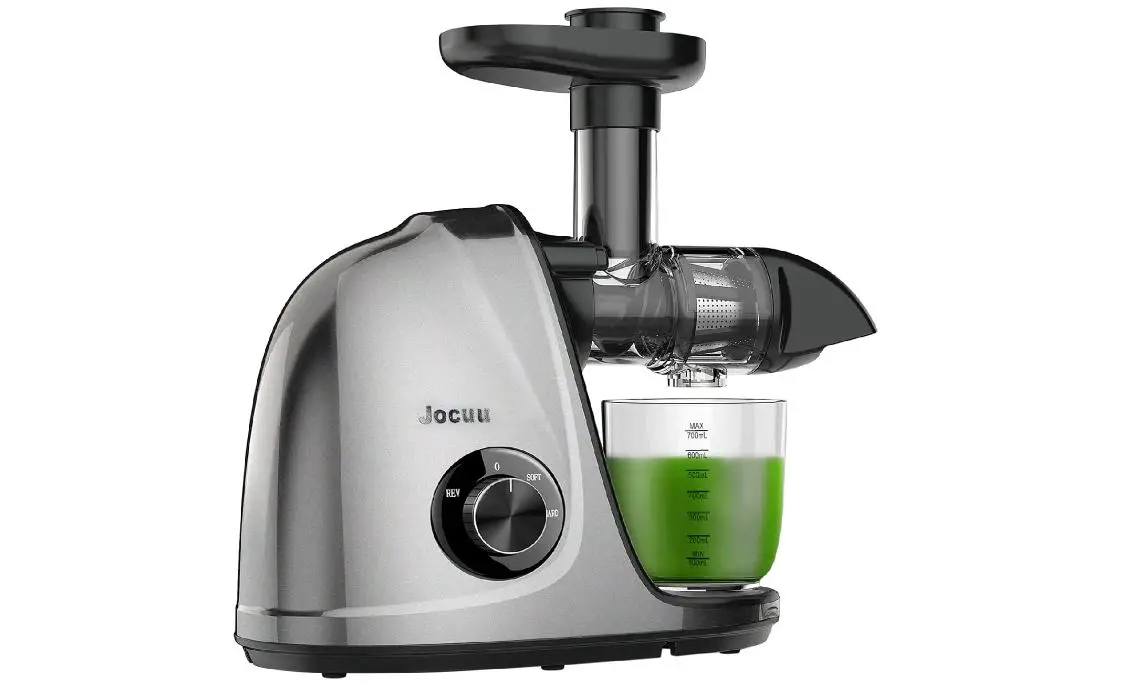
The best overall masticating juicer on Amazon is the Jocuu Slow Masticating Juicer.
It sells at $119 and has an overall rating of 90/100. It’s easy to assemble, use, and clean and doesn’t make much noise, which is a solid pro.
It’s a good juicer for the price that you pay. The one con is that the pulp sometimes comes out dry, so you might have to put it through the juicer again to get it wet.
Overall Score: 90/100
Check Out More Reviews Here:
Best Cold Press
Omega Juicer J8006HDS
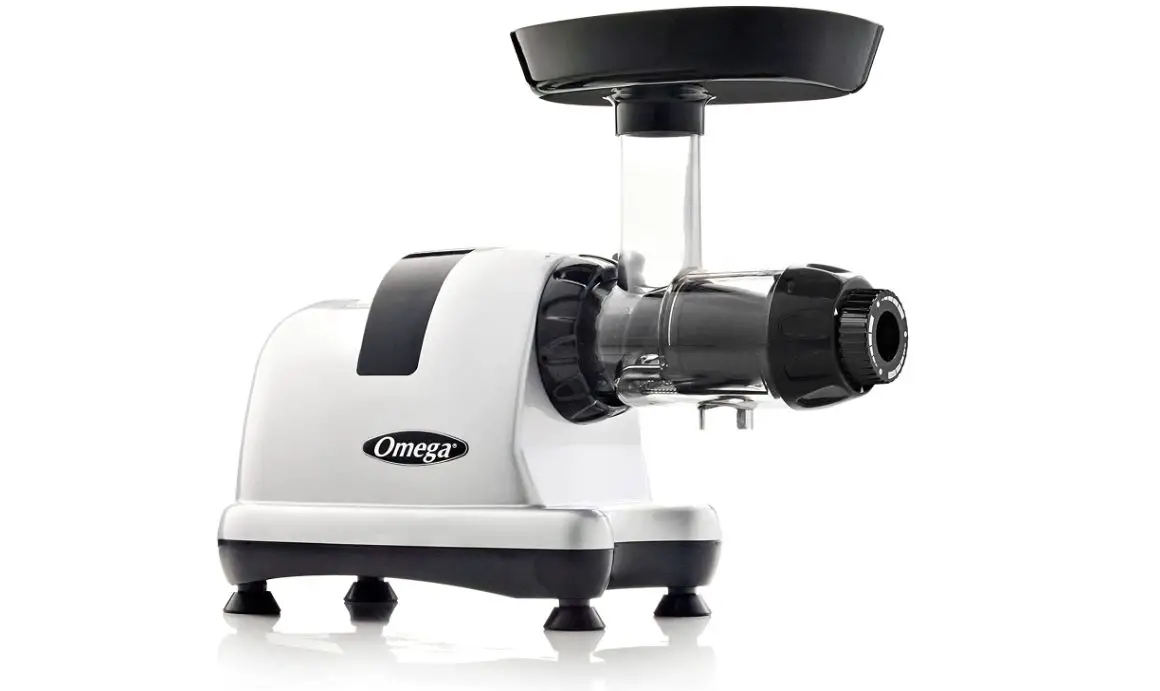
The best cold press juicer on Amazon also has an overall rating of 90/100, which is the Omega Juicer J8006HDS.
This is a hybrid model, as it mixes a cold press and a masticating juicer, so you get the best of both worlds! It is a durable and easy-to-use juicer with a low noise level.
It’s small in size, so it will make a large amount of juice and won’t take up too much counter space! The biggest con is that it is relatively expensive, costing $460.
Overall Score: 90/100
Check Out More Reviews Here:
FAQS
What cannot go in a juicer?
A host of fruits and vegetables shouldn’t be put in a juicer. Produce such as broccoli, avocado, and coconut are unsuitable for juicers.
When juiced, broccoli can be quite challenging to digest. Avocado doesn’t have any juice, so it ends up all mushed inside the juicer, creating a mess.
The white flesh from coconuts also does not produce juice, so you would be better off using coconut milk. If you want to know what else you shouldn’t use, give it a quick google!
Which fruits should not be juiced together?
There are many fruits that, when mixed, create an excellent-tasting juice. But you also get some that don’t work together.
Examples of fruits that don’t work when juiced together would be bananas and guavas, oranges and milk, oranges and carrots.
The orange and carrot combo is quite popular, but it can result in digestive issues.
Do I have to clean my juicer after every use?
It would be best if you ALWAYS cleaned your juicer after every use.
Otherwise, the little pulpy bits will get hard, making it much more difficult to clean later. Not cleaning your juicer after use can result in trapped bacteria and eventually lead to mold.
What features to look for in a juicer?
The type of juicer you should get will depend on what you plan to use the juicer for.
Just make sure that you do your research and read the product reviews! The best juicer is one that you will use.
How long is juice good after juicing?
I advise you to drink fresh juice soon after it’s made, as that is when it will taste the best! Fresh juice can become contaminated if left for too long.
However, you can keep fresh juice for up to 24 hours if it is refrigerated. At a push, juice can last up to 72 hours, but it will lose some fresh tastiness.
It will also depend on which fruits you use, as some fruits keep better than others. It would be worth researching storage methods for different types of juices!
Is it OK to freeze juice after juicing?
When you want to drink the juice, you will get the best results from thawing it in the refrigerator and drinking it as soon as it’s defrosted.
If you don’t drink the juice within 2-3 days, you can freeze it. Just make sure you put it into an airtight container, preferably glass.
Can you juice every day?
You can juice every day! Getting into a daily juice habit has many health benefits, such as more energy and mental clarity.
It is also a great and tasty way to consume good nutrients.
Conclusion
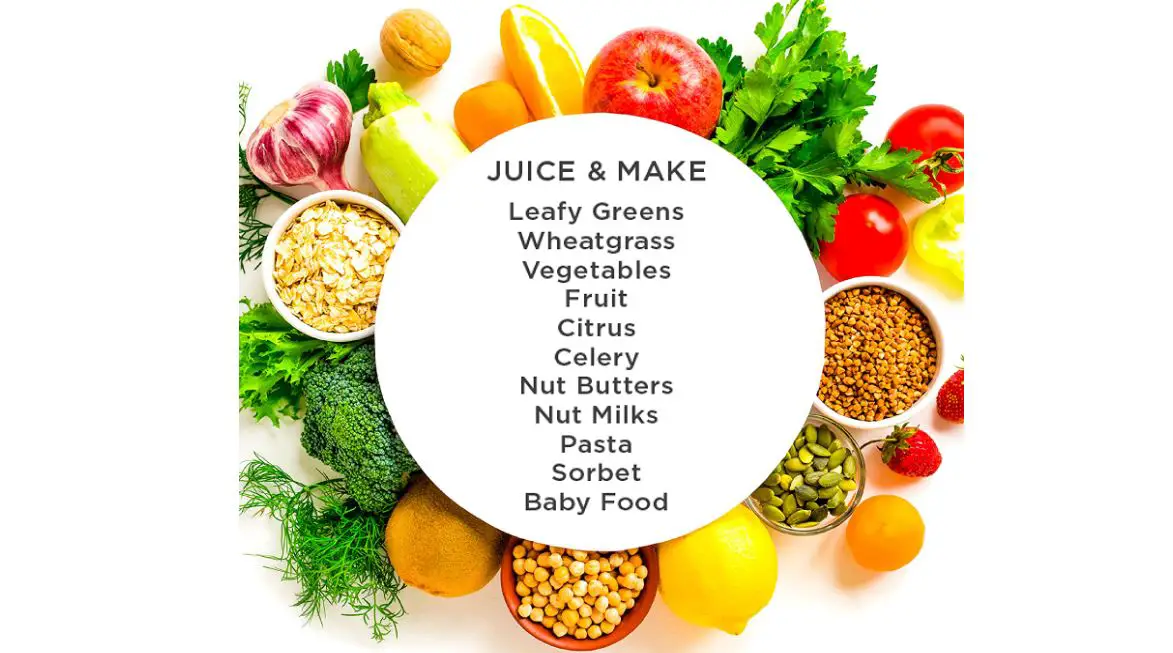
The juicer you decide to go for should be a juicer that you will use.
Both masticating and cold press juicers have their advantages and disadvantages. It comes down to what use you want to get from the juicer you buy.
If you want a juicer that is a bit slower but can take a large amount of produce and makes the highest quality juice that lasts longer and has as many nutrients as possible, I recommend going for a cold press.
It might be more expensive, but if you look after it, it’s a good investment.
If you want to drink your juice instantly, are not planning on making large amounts at a time, and are also not bothered by a bit of pulp, then I would say you should go for a masticating juicer.
It all comes down to your needs and what would suit you best!



